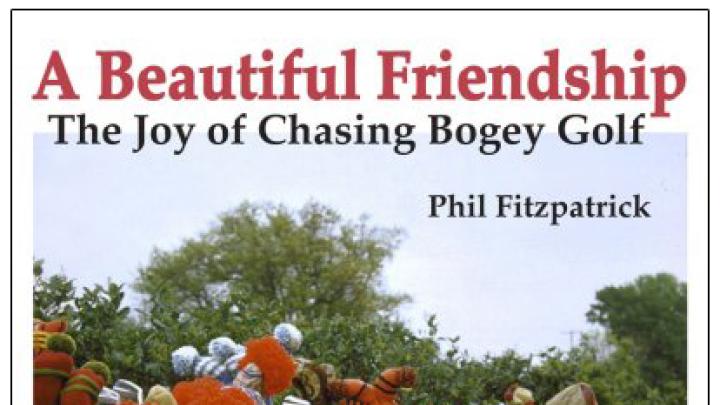Few golf books have emerged from the unlikely golfing haven of Duluth, Minnesota; in fact, A Beautiful Friendship: The Joy of Chasing Bogey Golf (Calyx Press Duluth, www.chasingbogey.net), by Phil Fitzpatrick ’67, may be the first. Fitzpatrick, an educator who began golfing “seriously” only in 2001, calls Duluth’s Lester Park Golf Course home. The book refreshingly mixes a commitment to golf mastery with a generous dose of whimsy; allusions range from Zen to the Rolling Stones, from Phil Mickelson to Bob Dylan.
The author (whose two favorite golf books are the Bible and the Tao Te Ching) suggests exercises like putting blindfolded, and titles one chapter, intriguingly enough, “The Most Important Split Second in Golf.” To Fitzpatrick, “bogey” means not only one over par, but Humphrey Bogart—gaining, with the capital B, overtones of “muscle and swagger.” The title echoes the final scene of Casablanca, and Fitzpatrick’s radically amateur approach suggests that most of us will do well to emulate Claude Rains and forge “a beautiful friendship” with the underappreciated bogey.








